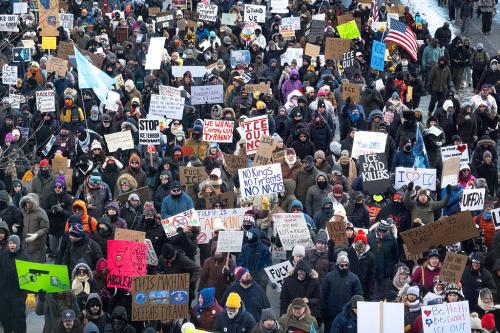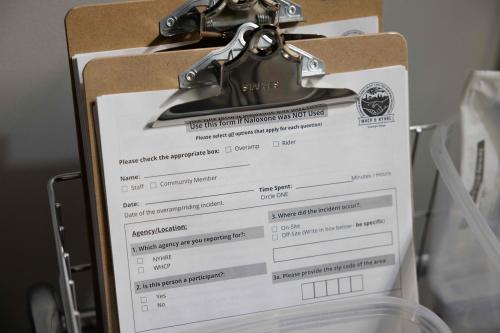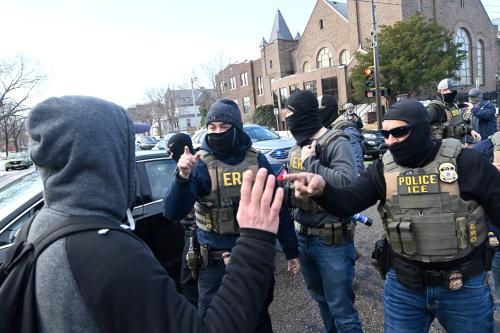“Our grandparents were not all fools and crooks.”
With that provocative opening, Brookings Senior Fellow Jonathan Rauch introduced a new paper with a title sure to intrigue some and infuriate others—“Political realism: How hacks, machines, big money and back-room deals can strengthen American democracy.”
This paper marks the beginning of a serious effort on behalf of Brookings scholars to open up a conversation challenging the reform assumptions of the past few decades. In the coming months we will be convening social scientists and public intellectuals along with politicians and activists in order to explore a new way of looking at solutions to the polarization of contemporary American politics. Not everyone will agree—with Rauch—or with each other. But we feel the time has come to take on the conventional reform wisdom and begin an intellectual dialogue on why our democracy seems to be failing.
Taking a page from international relations where realism assumes conflict among nations; political realism also assumes that conflict is a constant part of the system. According to Rauch realism, “…sees governing as difficult and political peace and stability as treasures never to be taken for granted.” He goes on to argue the virtues of transactional politics and to point out how, in the name of reform, weakening the bulwarks of transactional politics has weakened democracy as a whole. “Where the realist tends to believe that governing is inherently difficult, that politics is inherently transactional and that success is best judged in terms of reaching social accommodation rather than achieving some abstract purpose, the progressive tends to see government as perfectible and politics as a path toward a higher public good.”
In practice this means that the political realist advocates things that have been anathema to reformers. A sampling from Rauch’s paper follows.
- Political machines—such as the infamous Tammany Hall—serve useful functions like protecting “loyal insiders who ‘take one for the team.’”
- The movement of nominations to primaries “…has been the modern political world’s most conspicuous example of unintended and perverse consequences. Such small minorities participate in primaries that they have turned out to be the perfect place for radical voters on both the left and the right.
- The preoccupation with big money means that political parties, the only institutions invented so far to moderate politics and create a big tent have been taken out of the game and replaced by “unconstrained private machines.”
- Sunshine laws “can be counterproductive and reformers’ dogmatic and often moralistic commitment to them needs a reality check.”
- And earmarks or “pork” has its place in the system. “For years,” writes Rauch, “they were the hard currency of Capitol Hill’s political economy.”
Rauch is not alone in beginning to express a new way of thinking about political process. Not all of the scholars cited in his paper will agree with him but many of them have their own intriguing and compelling versions of political realism. In identifying and highlighting the work of nine scholars from around the country Rauch has recognized a school of thought that runs counter to conventional wisdom. As these scholars write and argue—with each other and with the broader political community – we can hope they create a clearer way forward for our troubled and divided democracy.
Click through to download a PDF or free ebook version of “Political realism: How hacks, machines, big money, and back-room deals can strengthen American democracy.”
The Brookings Institution is committed to quality, independence, and impact.
We are supported by a diverse array of funders. In line with our values and policies, each Brookings publication represents the sole views of its author(s).




Commentary
In praise of old fashioned politics
May 1, 2015